James Saunders
Guest Reporter

North Korea has blown up parts of the vital road and rail links to South Korea on the north side of the countries' border, the South has said.
At around midday on Tuesday, local time - or early in the morning in the UK - segments roads and rail lines connected to the South were blown up, the South Korean Joint Chiefs of Staff (JCS) said in an address to the media.
Footage from nearby areas appears to show North Korean personnel detonating parts of the road behind fences to the north of the heavily-fortified border, with smoke and dirt rising into the air as troops watched on.
But the fracas has ratcheted up tensions on the Korean peninsula - not least following allegations of invasive South Korean drones over the North's capital Pyongyang.
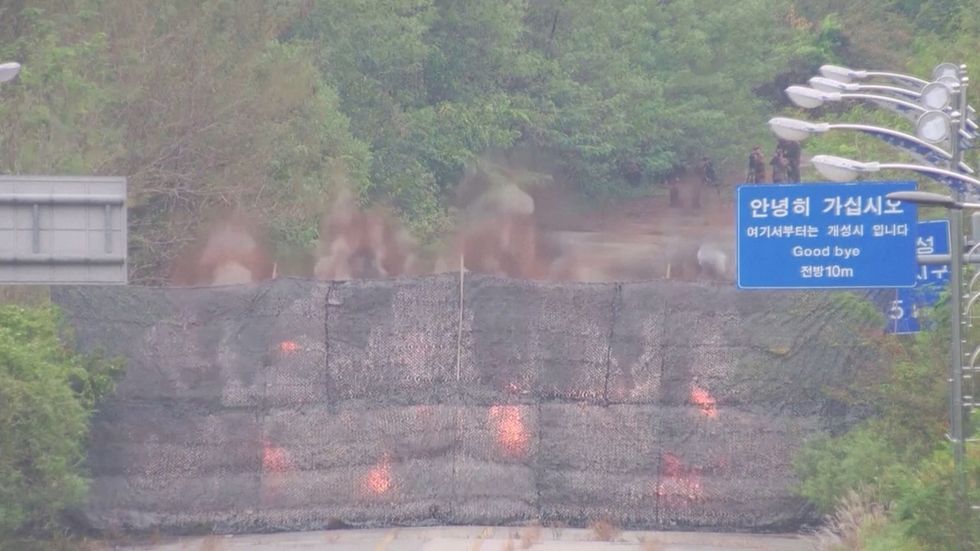
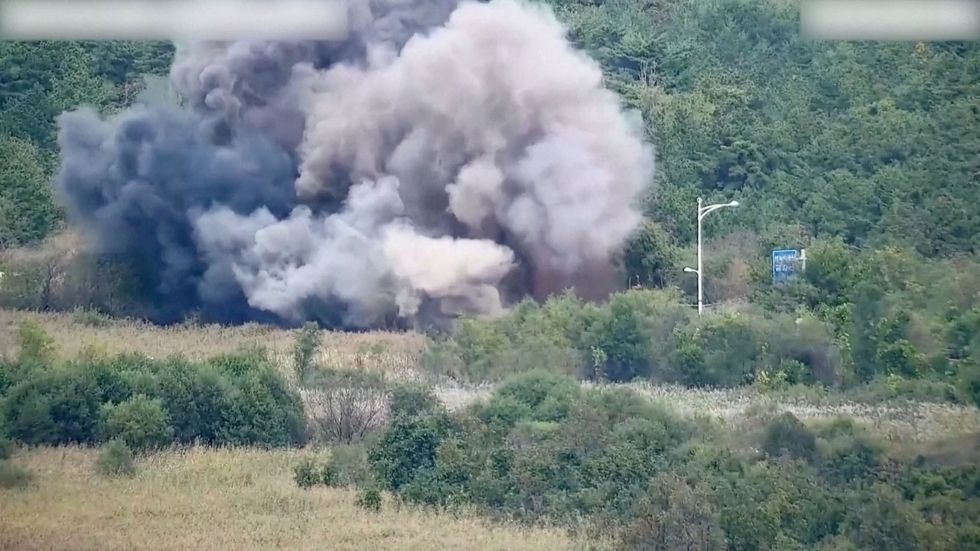
In response to the road raiding, South Korean soldiers fired warning shots south of the highly-guarded border zone dividing the neighbours - even though the explosions had not caused any damage on the southern side of the border.
The explosions came after Kim Jong Un's henchmen pledged last week to completely cut off the inter-Korean roads and railways and further fortify the areas on its side of the border.
And just yesterday, the South had warned that the North was readying up for a detonation.
North Korea had been installing landmines and barriers along the border in the build-up to today's escalation, and was seen on Monday doing additional work with heavy equipment, South Korea's JCS said.
The South had ramped up surveillance and readiness after the incident, it said.
LATEST FROM NORTH KOREA:
- Putin and Kim in bizarre showdown as they disagree over who should enter car first
- North Korea deploys hundreds of hot-air balloons carrying faeces and dumps them on South
- North Korea issues warning to US - 'You can never defeat the heroic Russian army'
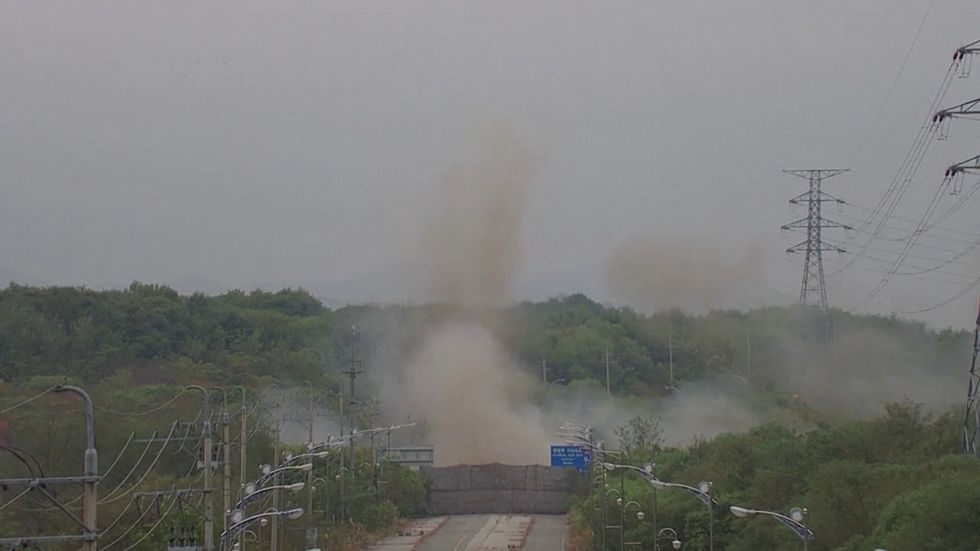
The two Koreas are still technically at war after their 1950-53 war ended in an armistice, rather than a peace treaty.
And the now-destroyed cross-border links symbolise a period of warming between the two adversaries - including a 2018 summit between their leaders when they declared there would be no more war and a new era of peace had opened.
At the time, the pair even marched at the 2018 Winter Olympics in South Korea under a unified "peace flag" - but events over the last few days look to have strained relations beyond the pale.
Some 180billion South Korean Won (£101million) in taxpayers' money had been spent on rebuilding the inter-Korean road, according to the country's Yonhap news agency.
But that went up in smoke after an escalating war of words between the Koreas after the North accused its rival of sending drones over Pyongyang.
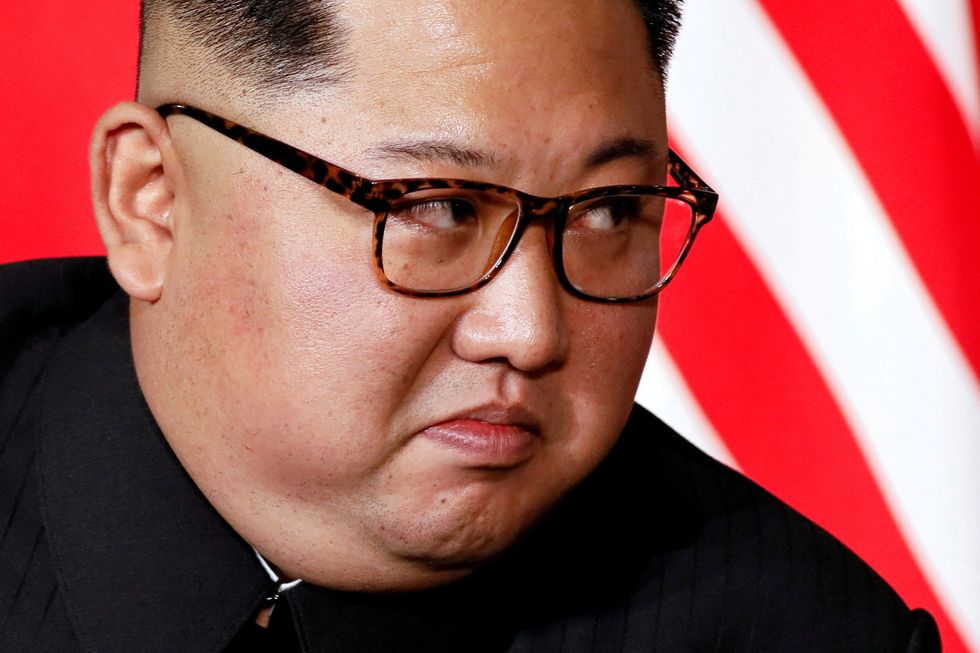
Seoul's unification ministry, which handles cross-border affairs, condemned the incident as a clear violation of past inter-Korean agreements, calling it "highly abnormal".
"It is deplorable that North Korea is repeatedly conducting such regressive behaviour," ministry spokesman Koo Byoung Sam said.
On Friday, the North said the drones had scattered a "huge number" of anti-North leaflets, in what it called political and military provocation that could lead to armed conflict.
But a spokesman for the South's JCS declined on Monday to answer questions over whether the South Korean military or civilians had flown the alleged drones.
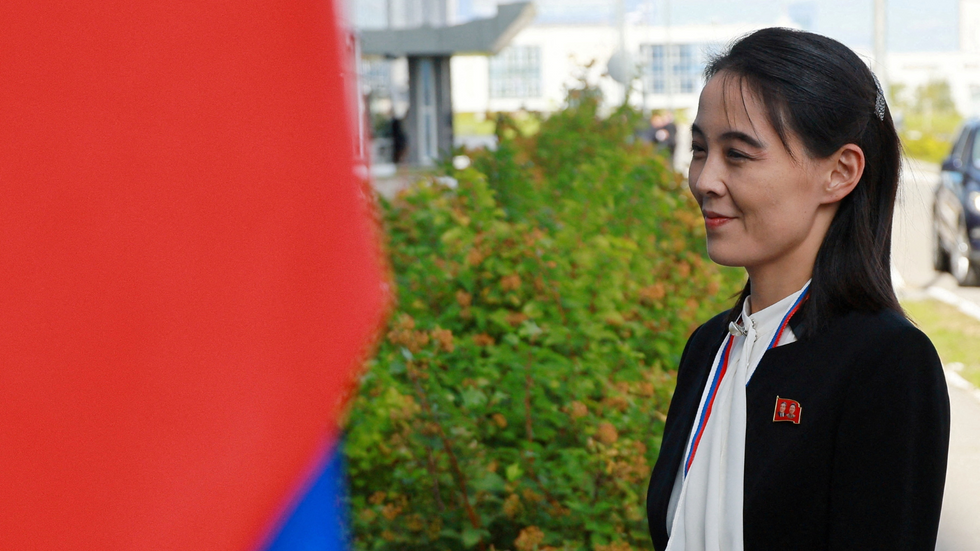
North Korean leader Kim Jong Un had overseen on Monday a meeting with defence and security officials to discuss how to respond to the "enemy's serious provocation that violated the sovereignty of the Democratic People's Republic of Korea", according to the country's state media.
Then today, his powerful sister Kim Yo Jong - dubbed the "world's most dangerous woman" by South Korean scholar Sung Yoon Lee - said "clear proof" had been secured to show that South Korea's military was behind the drones.
Find Out More...




